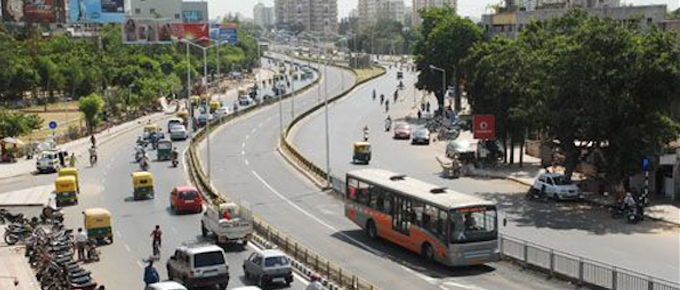Guangzhou, China, and Ahmedabad, India’s, bus rapid transit systems, both designed by ITDP and partners, were recognized as leaders in the fight against climate change at the 18th Conference of the Parties to the United Nations Framework Convention on Climate Change in Doha. These two systems were selected as part of the UN’s Momentum for Change Initiative, and are among nine featured “lighthouse activities” which help to curb greenhouse gas emissions, help people adapt to climate change, and benefit the urban poor.
The Guangzhou BRT was selected for excellence in mitigation and adaption, siting improvements in air pollution and passenger time savings of a combined 32 million hours per year. The quality of life improvements, specifically around Guangzhou’s “urban villages” located near the BRT corridor, and the resulting improved economic outcomes. Ahmedabad’s Janmarg BRT was selected for its mitigation impacts and reduction of overall vehicle travel, as 22 percent of commuters have switched from motorbikes to the bus since its implementation. It was also cited as a catalyst in the rejuvenation of Ahmedabad, serving to better connect the city. Both projects were selected as best practice models with high potential for scaling up and replication.

“We are very excited to showcase this year’s lighthouse activities as they demonstrate the commitment by communities, civil society organizations, local governments and private businesses to take concrete action to address climate change. The examples are inspiring and encouraging, not least for governments who have already set the course towards greater climate resilience, but who need to take the next essential steps to galvanize the speed and scope of climate action,” said UNFCCC Executive Secretary Christiana Figueres.
Projects were selected by an international advisory panel as part of the UNFCCC’s Momentum for Change Initiative, which is funded by the Bill & Melinda Gates Foundation. The other activities include the promotion of electric buses and rickshaws in Sri Lanka, energy efficient brick kilns in Peru and a project to support to the work of clean energy entrepreneurs in Uganda. More information on the activities, along with a description of the advisory panel and selection criteria.







